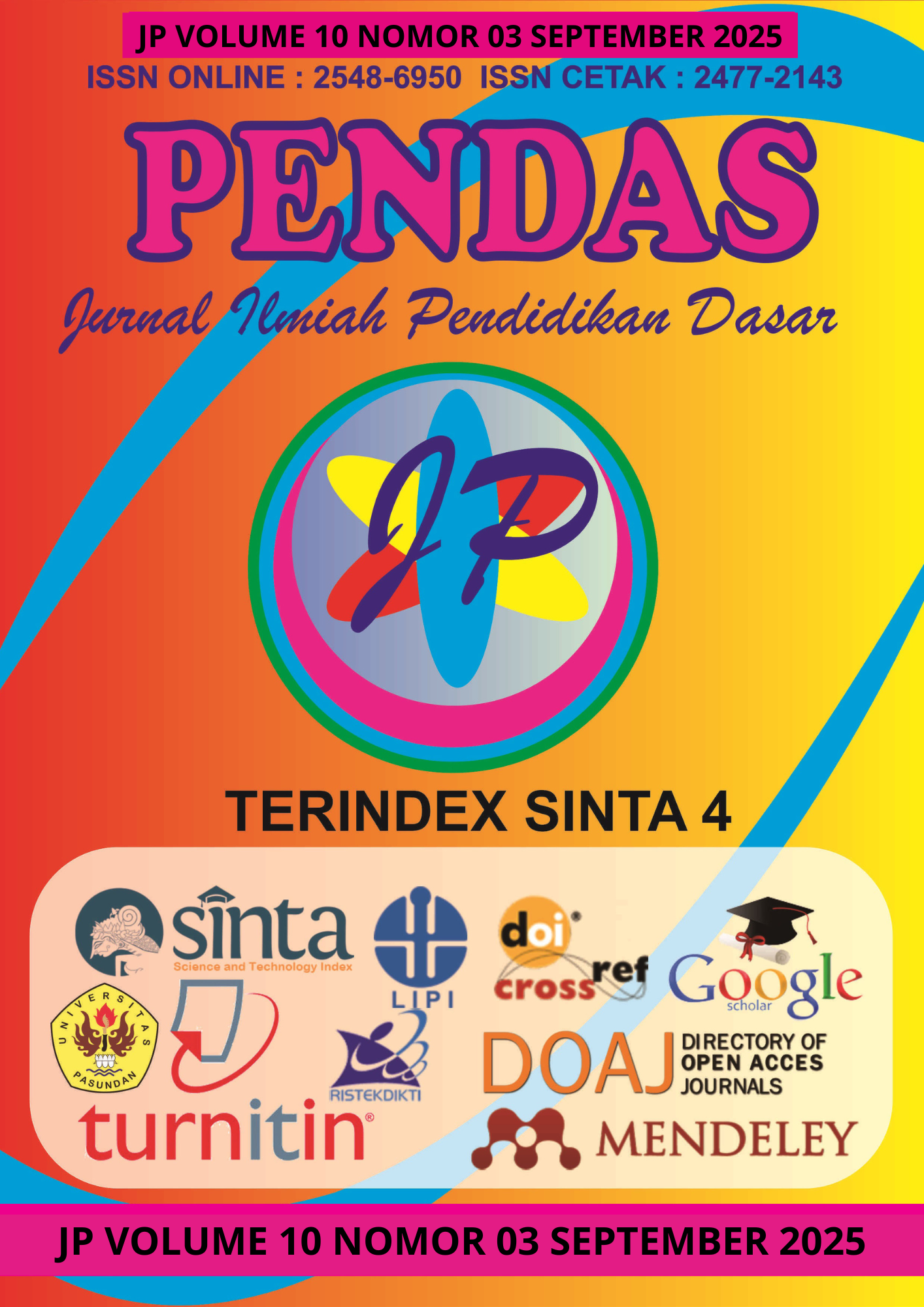PENERAPAN COOPERATIVE LEARNING STAD DALAM PENINGKATAN KOMUNIKASI LISAN DAN LITERASI MEMBACA SISWA KELAS V DI SD XYZ TANGERANG : STUDI KOMPARATIF
DOI:
https://doi.org/10.23969/jp.v10i03.32042Keywords:
STAD, cooperative learning, reading literacy, oral communication, comparative studyAbstract
This comparative study aims to examine the effectiveness of the Cooperative Learning
method—specifically the Student Teams Achievement Division (STAD)—in improving
fifth-grade students’ oral communication and reading literacy skills at SD XYZ Tangerang.
The study was motivated by field findings that showed many students had difficulties
expressing ideas verbally and understanding texts. A quantitative approach with a quasi-
experimental design was used, involving two classes: an experimental class using the
STAD model and a control class using conventional lecture methods. Instruments
included a reading literacy test (25 items) and an observation sheet for oral
communication skills. Data were collected through pretests and posttests, then analyzed
descriptively and inferentially. The results showed that the experimental class experienced
significantly greater improvement than the control class. The average reading literacy
score increased from 22.28 to 23.41, with a t-test significance value of 0.002. Oral
communication skills in the experimental class improved by 3.53 points, while the control
class only improved by 0.3 points. These findings confirm that the STAD model is more
effective than conventional methods in improving students’ communication and reading
skills. This research provides valuable recommendations for teachers to apply cooperative
learning strategies in classrooms.
Downloads
References
Aslan Berzener, Ü., & Deneme, S. (2021).
The Effect of Cooperative Learning
on EFL Learners’ Success of
Reading Comprehension: An
Experimental Study Implementing
Slavin’s STAD Method. TOJET: The
Turkish Online Journal of Educational
Technology, 20(4), 90–91.
Meyer, Carolyn. (2020). Communicating
for results : a Canadian student’s
guide. Oxford University Press.
Navida, I., Rasiman, Prasetyowati, D., &
Nuriafuri, R. (2023). Kemampuan
Literasi Membaca Peserta Didik Pada
Muatan Bahasa Indonesia Kelas 3 di
Sekolah Dasar. Jurnal Educatio FKIP
UNMA, 9(2), 1034–1039.
https://doi.org/10.31949/educatio.v9i2
.4901
OECD. (2019). PISA 2018 Assessment
and Analytical Framework. OECD.
https://doi.org/10.1787/b25efab8-en
Parkin, J. R., & Tyre, A. D. (2022).
Facilitating Effective Communication
in School-Based Meetings:
Perspectives from School
Psychologists. Facilitating Effective
Communication in School-Based
Meetings: Perspectives from School
Psychologists. New York: Taylor and
Francis.https://doi.org/10.4324/97803678545
22
Robert E Slavin. (1995). Cooperative
Learning Theory, Research, and
Practice (2nd ed.). Allyn and Bacon.
Super Admin. (2021, May 11). Mengapa
Literasi Baca-Tulis Itu Penting?
Retrieved 07/08/2025 from
https://ditsmp.kemendikdasmen.go.id/
ragam-informasi/article/mengapa-
literasi-baca-tulis-itu-penting
UNESCO. (2025, February 11). What you
need to know about literacy.
Retrieved 07/06/2025 from
https://www.unesco.org/en/literacy/ne
ed-know
Downloads
Published
Issue
Section
License
Copyright (c) 2025 Pendas : Jurnal Ilmiah Pendidikan Dasar

This work is licensed under a Creative Commons Attribution 4.0 International License.



















